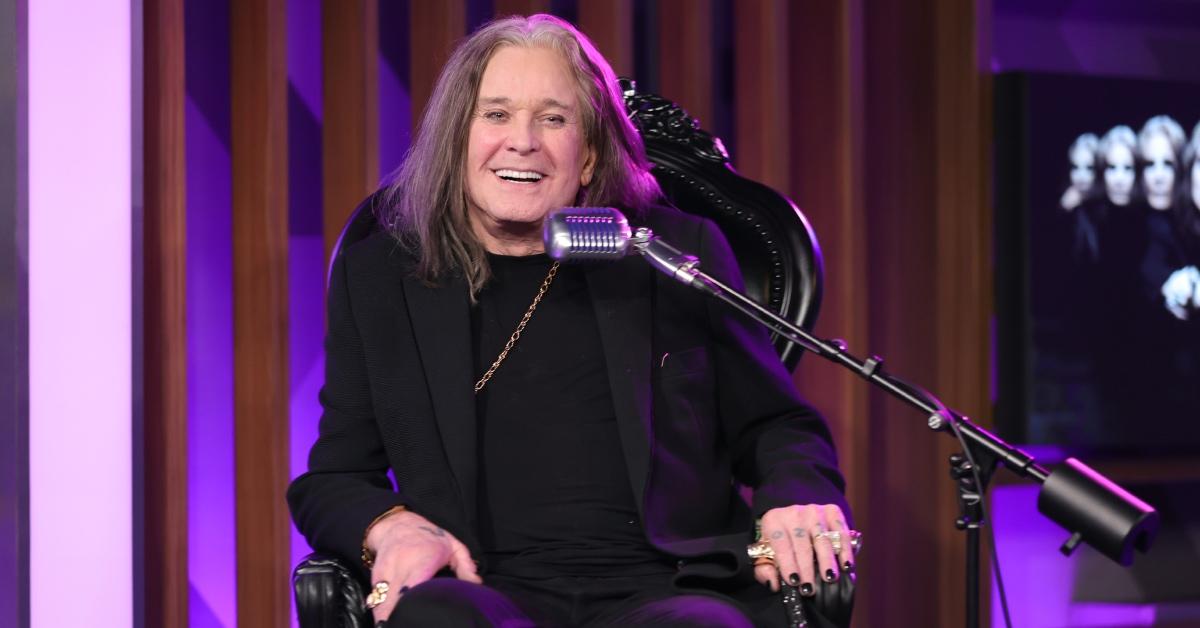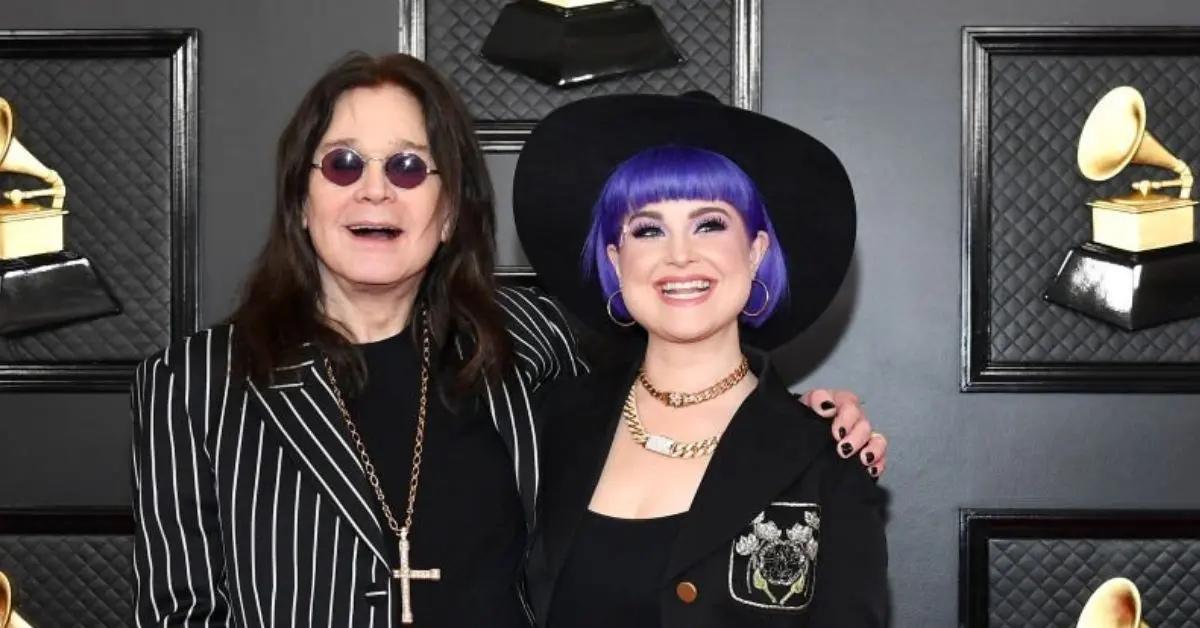Ozzy Osbourne's Net Worth: 2024 Update & How He Earned It!
Has the Prince of Darkness truly amassed a fortune worthy of his moniker? Ozzy Osbourne's net worth is a topic of intense fascination, reflecting not just a musician's success, but also the enduring power of a cultural icon who has weathered decades of rock 'n' roll excess and public scrutiny.
From the industrial heartlands of post-war England to the global stage, John Michael Osbourne, the man we know as Ozzy, has carved a singular path. His journey is a testament to resilience, reinvention, and the magnetic pull of music that transcends generations. This article delves into the financial landscape of Ozzy Osbourne, dissecting his earnings, investments, and the factors that have shaped his financial standing.
| Category | Details |
|---|---|
| Full Name | John Michael Osbourne |
| Stage Name | Ozzy Osbourne |
| Date of Birth | December 3, 1948 |
| Place of Birth | Aston, Birmingham, England |
| Nationality | British |
| Spouse(s) | Thelma Riley (m. 1971; div. 1979), Sharon Levy (m. 1982) |
| Children | Jessica Osbourne, Louis Osbourne, Aimee Osbourne, Kelly Osbourne, Jack Osbourne |
| Genres | Heavy Metal, Hard Rock |
| Instruments | Vocals |
| Years Active | 1967present |
| Bands | Black Sabbath, Solo Artist |
| Record Labels | Vertigo, Jet Records, Epic Records, Sony Music |
| Notable Albums | Blizzard of Ozz, Diary of a Madman, No More Tears |
| Estimated Net Worth | Approximately $500 Million (as of October 2024) |
| Reference | Forbes Profile |
The story of Ozzy Osbourne begins, not in the gilded halls of celebrity, but in the working-class streets of Aston, Birmingham. Born in 1948, John Michael Osbourne's early life was a far cry from the opulent world he would eventually inhabit. The industrial landscape of his childhood shaped his perspective, providing a stark contrast to the fantastical realm of rock and roll that would soon consume him. These formative years, characterized by financial constraints and a challenging environment, laid the groundwork for a tenacious spirit that would prove crucial in his future endeavors.
The late 1960s witnessed the birth of Black Sabbath, a band that would forever alter the course of music history. Alongside guitarist Tony Iommi, bassist Geezer Butler, and drummer Bill Ward, Osbourne helped forge a sound that was both groundbreaking and controversial. Their dark, heavy, and often occult-themed music was a stark departure from the prevailing psychedelic trends of the time. Black Sabbath's impact was immediate and profound, establishing heavy metal as a legitimate genre and influencing countless artists across the globe. Albums like "Paranoid," "Master of Reality," and "Vol. 4" not only sold millions of copies, but also defined the aesthetic and sonic landscape of an entire generation.
The early years of Black Sabbath were financially rewarding, yet turbulent. The band's initial success, though significant, was hampered by internal conflicts and external pressures. Managing the complexities of a burgeoning musical empire, including touring, recording costs, and band member compensation, presented a unique set of challenges. The financial structures within the music industry were not always transparent, and the band, like many of their contemporaries, navigated a complex web of contracts, royalties, and financial arrangements. The business of music, particularly in the volatile world of rock and roll, demanded a level of shrewdness that often clashed with the creative impulses of the musicians.
Ozzy's volatile nature and substance abuse issues ultimately led to his dismissal from Black Sabbath in 1979. This pivotal moment, while a professional setback, proved to be a catalyst for his solo career. The transition was not immediate or easy. The departure left him adrift, facing an uncertain future. Yet, with the unwavering support of his wife and manager, Sharon Levy (later Sharon Osbourne), he embarked on a solo journey that would redefine his legacy.
The early 1980s marked a triumphant rebirth for Ozzy. His solo debut, "Blizzard of Ozz," released in 1980, was a critical and commercial success. The album, featuring the iconic guitarist Randy Rhoads, showcased a melodic yet powerful sound, perfectly complementing Ozzy's distinctive vocals. The albums success established him as a force in his own right, proving that he could thrive independent of Black Sabbath. Tracks like "Crazy Train" and "Mr. Crowley" became instant classics, solidifying his place in the pantheon of rock gods. The follow-up album, "Diary of a Madman," further cemented his solo status, with hit songs and sold-out tours across the globe.
The early years of his solo career were also marked by tragedy. The untimely death of Randy Rhoads in 1982 was a devastating blow. The loss of his guitarist and friend had a profound effect on Ozzy, forcing him to regroup and forge ahead. Despite personal challenges and the inherent dangers of the rock and roll lifestyle, Ozzys determination never wavered. Each setback, each challenge, only strengthened his resolve to continue performing and sharing his music with his fans.
The 1980s were a period of immense wealth accumulation for Ozzy Osbourne. The success of his albums, combined with relentless touring and merchandise sales, significantly increased his income. Royalties from album sales, radio play, and live performances became a major revenue stream. Further complicating matters was the burgeoning business of music licensing, with Ozzy's music being featured in films, television shows, and advertisements, bringing in additional revenue.
In addition to music sales, Ozzy was also adept at diversifying his income streams. He invested in property, a common practice among successful entertainers. Owning real estate, particularly in locations like Los Angeles and the United Kingdom, provided a steady source of income through rentals and appreciation. Endorsements and sponsorships also played a role, capitalizing on his brand recognition and the popularity of his persona.
The Osbourne family also gained notoriety through their reality television show, "The Osbournes," which premiered on MTV in 2002. The show, which featured Ozzy, Sharon, and their children Kelly and Jack, offered viewers an intimate glimpse into their lives. "The Osbournes" became a cultural phenomenon, attracting millions of viewers and significantly boosting the family's collective wealth. The show's success translated into lucrative licensing deals, merchandising opportunities, and further recognition for Ozzy and his family.
The music industry underwent a radical transformation in the late 1990s and early 2000s. The rise of the internet, digital music downloads, and streaming services disrupted traditional revenue models. While physical album sales declined, the proliferation of online platforms created new opportunities for musicians. Royalties from streaming services like Spotify, Apple Music, and others became a significant source of income. Ozzy and his team adapted to these changes, navigating the complexities of digital distribution and the evolving landscape of music consumption.
Ozzy's career has continued to thrive in recent years, despite significant health challenges. He has released new albums, embarked on farewell tours, and remained a beloved figure in popular culture. The value of his back catalog, which includes his work with Black Sabbath and his solo recordings, remains substantial. As older songs become increasingly available on streaming services, royalties from those tracks continue to generate income. The enduring appeal of his music, combined with his iconic status, ensures a steady stream of revenue.
Merchandising also plays a crucial role in Ozzy's financial success. The sale of branded merchandise, including t-shirts, posters, and other memorabilia, is a significant revenue stream. The enduring popularity of his image, with its gothic undertones and theatrical flair, continues to attract fans, particularly across different demographics. The demand for authentic Ozzy Osbourne merchandise reflects the enduring appeal of the brand he built over the years.
The legal and financial management of Ozzy Osbourne's assets is handled by a dedicated team of professionals. This includes lawyers, accountants, and business managers who oversee his investments, royalties, and other financial matters. The intricacies of copyright law, royalty agreements, and international taxation require specialized expertise. The Osbournes, with Sharon at the helm, have always understood the importance of sound financial management, ensuring their continued success and financial security.
Ozzy's net worth is the culmination of a lifetime of dedication, creativity, and resilience. He has overcome numerous obstacles, from the industrial gloom of his youth to the perils of rock and roll excess. His financial success is not merely the result of album sales and tour revenues; it reflects his ability to build a brand, adapt to changing market conditions, and maintain a strong connection with his fans. The legacy of Ozzy Osbourne extends far beyond his music; it's a testament to the enduring power of the human spirit and the unwavering appeal of a true rock and roll icon.
Calculating a precise net worth for any celebrity is inherently complex. Publicly available information, such as real estate holdings and ownership stakes in businesses, provides some insight. However, private investments, personal assets, and undisclosed income streams make it challenging to arrive at a definitive figure. Financial analysts estimate Ozzy Osbournes net worth to be around $500 million. This figure represents a compilation of his various assets, including royalties, real estate, business ventures, and other investments.
The story of Ozzy Osbourne is a compelling one, marked by creativity, resilience, and an enduring connection with his audience. His financial success, the result of decades of work and astute business decisions, allows him to enjoy his legacy, both personally and professionally. The enduring power of Ozzy's music and the strength of his brand will ensure his continued presence in the cultural landscape for years to come. The Prince of Darkness, it seems, has done quite well for himself.


